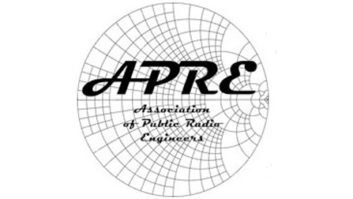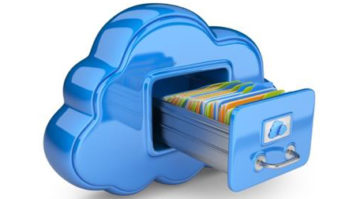Recently I was requested to produce a retention schedule for our public file officer, spelling out the length of time to retain each document in the file and answering the question, “How much historical information is really required?”
It’s a good idea to make an ongoing habit of policing your public files of unnecessary documents in an effort to keep it as condensed and concise as possible. An ongoing maintenance program will keep the file focused and manageable.
If keeping a historical archive is important to you, I recommend establishing a separate archive altogether for such material, or even enlisting a representative of your local historical society to take charge of such material for you. The public file is not the location for those documents.
So what should remain?
Clearly labeled folders, in the presentation order described here, will ensure that the various aspects of your efforts to serve the public’s interest are addressed. This guide is gleaned from the FCC’s publication “The Public and Broadcasting.”
I cannot act here as your company’s legal counsel. But after undergoing countless inspections over the years, my experience has demonstrated that the following is a recipe for successful and painless public file maintenance, minus the legal-eagle double-speak, as valuable as it is.
Many thanks go to Harry Cole of Fletcher, Heald and Hildreth, who is also an RW contributor, for his assistance.
A “clip-and-paste” retention schedule accompanies this article. You may find it handy to keep it near your public file “maintenance area.”
Retention schedule and contents
Stations must keep the following materials in their public inspection file, and may even wish to provide an index of the file material in the front folder:
- The Station License. Stations must keep a copy of their current FCC license in the public file, together with any material documenting FCC-approved modifications to the license. This would include letters to and from the FCC requesting and or authorizing HD Transmission.
Part 73 also dictates that a copy of the license and all authorizations be posted at the stations control point. This license document reflects the station’s technical parameters (authorized frequency, call letters, operating power, transmitter location, etc.), as well as any special conditions imposed by the FCC on the station’s operation. The license also indicates when it was issued and when it will expire.
- Applications and Related Materials. The public file must contain copies of all applications filed with the FCC that are still pending before either the FCC or the courts. These include applications to sell the station (technically known as “assigning” or “transferring” the license) or to modify its facilities (for example, to increase power, change the antenna system or change the transmitter location).
Also, the station must keep copies of any construction or sales application whose grant required the FCC to waive any rules. Applications that required a waiver, together with any related material, will reflect the particular rule(s) that the FCC waived.
The station must also keep renewal applications that the FCC granted for less than a full license term until final grant of the next renewal application. The FCC may grant such short-term renewals when they are concerned about the station’s performance over the previous term. These concerns will be reflected in the renewal-related material in the public file. FCC Attorney Harry Cole comments that when an application is granted subject to a waiver request, that application and all of the materials related to it must be retained in the Public File for as long as the waiver is in effect.
- Citizen Agreements. Stations must keep a copy of any written agreements they make with local listeners. These “citizen agreements” deal with programming, employment or other issues of community concern. The station must keep these agreements in the public file for as long as they are in effect.
- Contour Maps. The public file must contain copies of any service contour maps or other information submitted with any application filed with the FCC that reflects the station’s service contours and/or its main studio and transmitter location. These documents must stay in the file for as long as they remain accurate. Not all stations are required to have contour maps.
- Material Relating to an FCC Investigation or a Complaint. Stations must keep material relating to any matter that is the subject of an FCC investigation or a complaint that the station has violated the Communications Act or the FCC’s rules. This material must be retained until your station’s FCC counsel advises that it may be discarded. Since the FCC is not involved in disputes regarding matters unrelated to the Communications Act or the FCC’s rules, stations do not have to keep material relating to such matters in the public file.
- Ownership Reports and Related Material.The public file must contain a copy of the most recent, complete Ownership Report filed for the station. This report has the names of the owners of your station or stations, and their ownership interests. It also lists any contracts related to the station that are required to be filed with the FCC, and identifies any interest held by the station licensee in other broadcast stations.
- List of Contracts Required to Be Filed With the FCC. Stations have to keep either a copy of all the contracts that they have to file with the FCC, or an up-to-date list identifying all such contracts. If the station keeps a list and someone asks to see copies of the actual contracts, the station must give provide them within seven days. The requesting party is responsible for all applicable copying costs.
Contracts required to be maintained or listed in the public inspection file include:
- Any contracts relating to (current) network service (network affiliation contracts);
- Also, any contracts relating to ownership or control of the licensee or permittee or its stock. Examples include articles of incorporation, bylaws, agreements providing for the assignment of a license or permit or affecting stock ownership or voting rights (stock options, pledges, or proxies), and mortgage or loan agreements that restrict the licensee or permittee’s freedom of operation;
- Management consultant agreements with independent contractors, Joint Service Agreements, and station management contracts that provide for a percentage of profits or sharing of losses.
- Political File.Stations must keep a file containing records of all requests for broadcast time made by or for a candidate for public office. The file must identify how the station responded to such requests and (if the request was granted) the charges made, a schedule of the time purchased, the times the spots actually aired, the rates charged and the classes of time purchased. The file must also reflect any free time provided to a candidate. The station must keep the political records for two years after the spot airs. You can find the political broadcasting rules elsewhere in “The Public and Broadcasting” manual.
- Annual Employment Reports and Related Material. The FCC requires all broadcasters to afford equal opportunity in its employment practices. The recent EEO language of 2001 requires all broadcasters and cable entities to place an annual EEO report in their public file detailing their outreach efforts. The rule reads differently for operators with five or fewer employees in smaller markets, so be sure to consult your stations FCC counsel on what your responsibilities are if you’re not absolutely certain. More on the recent EEO rule changes may be found at the FCC’s Media Bureau website. Simply perform a search for EEO Rules. While no retention schedule has been specified, the records should probably be retained for the term, or length, of the license.
- Copies of the manual “The Public and Broadcasting.” Stations must keep a copy of this manual in the public file. You can also read it on the FCC’s Web site.
- Letters and E-Mail from the Public. Commercial stations must keep written comments and suggestions received from the public regarding their operation for at least three years. Noncommercial stations are not subject to this requirement.
- Issues/Programs List. Every three months, all stations must prepare and place in their file a list of programs that have provided their most significant treatment of community issues during the preceding three months. The list must briefly describe both the issue and the programming where the issue was discussed. The stations must keep these lists for the entire license term. This file must be updated on the 10th day after the completion of the preceding quarter.
- Radio Time Brokerage Agreements. A time brokerage agreement is a type of contract that generally involves a station’s sale of discrete blocks of air time to a broker, who then supplies the programming to fill that time and sells the commercial spot announcements to support the programming. Commercial radio stations must keep a copy of every agreement involving: (1) time brokerage of that station; or (2) time brokerage by any other station owned by the same licensee.
- Local Public Notice Announcements. When someone files an application to build a new station or to renew, sell or modify an existing station, the FCC often requires the applicant to make a series of local announcements to inform the public of the application’s existence and nature. These announcements are either published in a local newspaper or made over the air on the station, and they are intended to give the public an opportunity to comment on the application. Copies of these announcements must be retained in the public inspection file. If audio, any reasonably accessible media may be used. (i.e. cassette, CD, Web Site MP3, etc).
Everyone seems to have their own methodology for maintaining this file. The key is to make sure to visit it at a bare minimum, quarterly, to insert the Issues & Programs lists on a timely schedule, and to use those precious moments to also purge old or expired documents.
Performed on a regular schedule, this will assure that the file will serve as a reminder to any who request to view it as representative of your station’s commitment to their community, and to your company’s license.
This article offers my advice but it is not legal counsel. Be sure to check with your communications attorney to confirm or modify these practices to fit your particular situation.
Chuck Bullett, CSRE, has held DOE positions in New England, Washington D.C., and now San Francisco. He is former chair of SBE Chapter 37 and holds amateur call sign W1AEK. Write him at [email protected].
File Folder LabelDocument(s)Retention ScheduleStation LicenseStation license & all authorizationsUntil License RenewalApplicationsAll pending applications before FCC or courtsUntil License RenewalCitizen AgreementsWritten agreements with listenersUntil Agreement ExpiresContour MapsAny contours submitted with FCC AppsAccurate? Keep ThemFCC Investigations & ComplaintsAny document relating to complaint or FCC actionUntil FCC advises material may be discardedOwnership ReportsOwnership report as supplied by corporate counselMost Recent Report Filed on Behalf of StationContractsAny contract on-file with FCCCurrent and Active OnlyPolitical FileRecords of requests for broadcast time by/for candidates for public officeTwo Years After Spots AirAnnual Employment ReportsCurrent copy as recommended by your FCC CounselTerm of License“The Public & Broadcasting”A least one copy of this manual must be on fileIndefinitely; Until RevisedLetters & Email From the PublicAll letters and e-mails receivedThree (3) YearsQuarterly Community Needs Assessment/Issues & ProgramsList of programs giving significant treatment to community issuesLicense TermTime Brokerage AgreementsCopy of agreements involving this or other owned stationsEntire License TermLocal Public AnnouncementsCopy of announcements (CD, cassettes, newspaper clippings)Entire License Term












